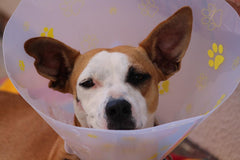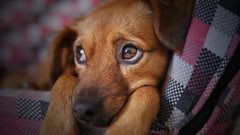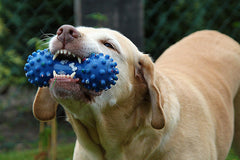
Birds make phenomenal pets. They are highly intelligent, fun to play with, and are great companions in life.
Those of us that have birds always want to give them the best care possible. Typically, bird owners will buy the best quality bird food and give them proper socialization and exercise. However, when it comes to bird hygiene, what to do becomes a little less clear. Cleanliness is incredibly important for health, but what does this mean? Moreso, what should you be doing to ensure your feathered friend is hygienic?
Here are five tips that you should know to ensure your feathered friend has a long and happy life.
Clean Your Bird's Cage, Toys, and Perch

The single most crucial aspect of keeping your bird safe and clean is to ensure that all toys, their perch, and their cage never get too dirty. Infectious diseases can sometimes spread via drinking water and droppings, which can be particularly problematic if you have more than one bird. You should make it a habit to clean the cage and all items with regularity so that your feathered friend has a clean environment and prevent diseases.
Clean Drinking Water

Your pet bird should have clean drinking water every day. By providing clean water, you'll minimize the chances of your bird contracting any bacteria or other pathogens that can sometimes breed in stagnant water.
Discard Uneaten Food After Four Hours

Any fresh fruits, vegetables, and other cooked meals should be discarded after four hours to prevent them from going bad. Food left out for longer than that may go bad, and it could present digestive issues for your bird.
Provide A Daily Bird Bath

In the wild, birds have lots of opportunities to bathe themselves in the rain. Unfortunately, indoors, those opportunities are limited. Provide the opportunity for your birds to cleanse themselves daily by filling up a shallow bowl with a couple of inches of water (don't fill the water more than your bird's height). Eventually, your pet will decide to get in there and clean themselves off. Once their bath is complete, remove the water and dry the cage to prevent the growth of unwanted bacteria.
Groom Your Bird's Feathers, Nails, And Beak

There's a lot of "personal" grooming that birds do in the wild. You should consult with a veterinarian for the best way to groom your bird since they can demonstrate how to do it safely. You'll have to trim the feathers on your bird's wings occasionally and clip your bird's claws. In the wild, their nails wear down from daily movement, but in captivity, that extensive movement never happens. The same goes for the beak. Generally, trimming the beak should be left for a vet since it is a very delicate and careful procedure.
Grooming Your Bird Will Help Them Live A Long Life

Not only does grooming provide your bird with better health, but it also makes them look better. There's nothing more beautiful than seeing a trimmed, clean, bathed bird. With these five tips, you'll have your bird healthy and looking fantastic in no time!




